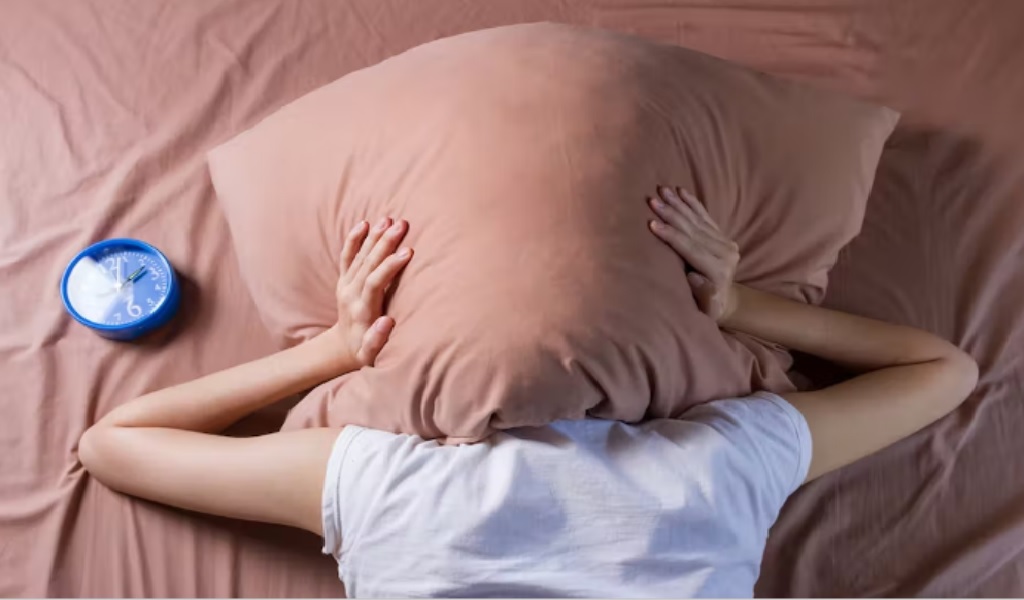Insomnia is a common health condition that causes trouble falling asleep and staying asleep. About one in two adults suffer from some degree of insomnia, while up to 10 percent experience chronic insomnia. Lack of sleep is linked to various health issues, including heart disease and high blood pressure. Chronic insomnia can also contribute to unhealthy habits, including physical inactivity, lack of motivation, and unhealthy food choices. Thankfully, there are ways to combat insomnia and improve your sleep quality.
Getting enough sleep is crucial to a healthy immune system. When you are asleep, your immune system can build protective proteins to fight off viruses. Research shows that sleep deprivation impairs the production of certain cytokines necessary for the immune system to function properly. Lack of sleep also inhibits the production of infection-fighting cells and antibodies. This deficiency can lead to many health issues, including heart disease, obesity, and diabetes. It would help if you learned how to fall asleep fast and easily.
In addition to impairing your health, a lack of sleep also negatively affects your mood and ability to function. Those not getting the required amount of sleep are prone to mood swings, lack of motivation, and difficulty concentrating. In addition, people who don’t get enough sleep are more prone to accidents and injuries, especially when operating heavy machinery.
The Negative Effects Of Lack Of Sleep On Your Work Performance
Insufficient sleep is detrimental to your work performance and can negatively affect your health, motivation, and decision-making. Studies have shown that a person who sleeps only six hours per night has a performance deficit equal to that of 48 hours of insufficient sleep. In addition, those who are chronically sleep deprived miss work twice as often as those who get adequate sleep.
- The impact of sleep deprivation on productivity
- Impact of insufficient sleep on mental health
- The impact of insufficient sleep on motivation
- Impact of insufficient sleep on decision-making
Effects of Not Getting Enough Sleep
If you don’t get enough sleep, it can affect everything from your mood to your health. In this infographic, you’ll learn about the symptoms and effects of not getting enough sleep. Moreover, you’ll discover how sleep deprivation can affect your health and memory. Lack of sleep is also a reason to have weird dreams.
Symptoms
Lack of sleep can cause serious problems for a person’s health. Symptoms of sleep deprivation can include low energy and drowsiness during the day. You may also be easily irritated or even experience mood swings. This lack of sleep can even affect a person’s performance at work or school.
Studies show that people who don’t get enough sleep have a greater risk of developing chronic illnesses. In addition to impairing cognitive function, lack of sleep can negatively affect the immune and cardiovascular systems. Sleep deprivation is also linked to inflammation and higher blood pressure. The human body needs seven to eight hours of sleep each night.
Causes
Insomnia is a widespread problem that affects about 90% of people. Studies have shown that cognitive performance affects poor concentration, attention, problem-solving, and reasoning. In addition, lack of sleep can make learning difficult because it makes it harder to consolidate memories. Furthermore, people who do not get enough sleep can suffer from poorer physical and mental health.
Besides medical conditions, other common causes of sleep deprivation include voluntary behavior, personal commitments, and work schedules. Excessive alcohol or drug consumption can also contribute to sleep deprivation. Moreover, caregiving responsibilities may also interfere with sleep.
Effects
Insufficient sleep can have serious negative effects on your health. Not only does it impair your mental and physical performance, but it can also make you irritable and drowsy. If you get less than seven hours of sleep a night, you’re more likely to make mistakes and have trouble concentrating. It can make you prone to accidents and rely on caffeine or other substances to get through the day.
The brain needs adequate sleep to reset and restart itself. Sleep is essential for mental, emotional, and physical well-being. Lack of sleep can affect your mood, affect your concentration, and lead to problems with people and with work. Lack of sleep can also reduce your quality of life, making it more difficult to enjoy everyday activities. Sadly, some people do not realize that not getting enough sleep can lead to various health problems, including cardiovascular disease, obesity, and early mortality.
Treatments
A lack of sleep negatively affects your health, which can manifest in various ways. These symptoms include low energy, drowsiness, and irritability. You may even have a harder time concentrating at work and making mistakes. In addition, you may feel the need for a cup of coffee to get through the day.
The first step in finding relief is to talk to a doctor about your sleep problems. They will discuss your symptoms and sleep patterns and recommend a course of treatment.
Conclusion:
Lack of sleep has been proven to affect several aspects of our lives, including work performance. Working while underslept can lead to irritability and a vulnerability to stress. The brain’s circadian rhythms are affected, and our reaction time to stressful situations is reduced.
It, in turn, affects several dimensions of work, such as our ability to think, focus, and make judgments. Chronic sleep deprivation has also been linked to increased obesity and heart disease risk. In addition, chronic sleep deprivation is associated with cognitive decline.


















